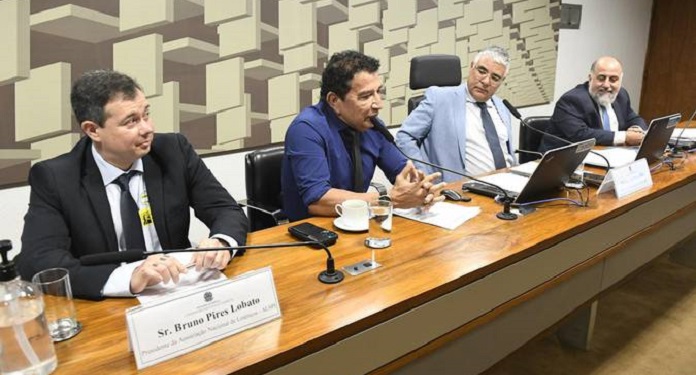The bill that regulates fixed-odd sports betting, known as bets, caused disagreements in a public hearing at the Senate’s Economic Affairs Committee (CAE).
Thus, the text defines the fixed-odd betting lottery as a betting system that includes virtual online gaming events and real sports-themed events.
While the text determines that the company that operates the betting system must have authorization from the Ministry of Finance, and must pay a fixed amount of consideration, stipulated in regulation and limited to R$30 million.
The project also requires that bets be taxed at 18% on the gross revenue from games subtracted from the prizes paid to bettors.
Impact on Brazilian lotteries
The president of the National Association of Lotteries, Bruno Lobato, explained that lotteries in Brazil were born and remained with social transfers as their core activity.
According to him, with the decrease in revenue obtained from games, it is impractical to maintain services such as correspondent banking through the lottery network.
After all, Lobato claims that the impact this type of game is having on the lottery network is to kill the lottery network once and for all.
“The lottery network is experiencing great difficulty, we are arranging very low shares for banking services,” said Lobato.
“We are experiencing great difficulty with games and with this competition that is being completely unfair to the lottery network, what I said is that the natural tendency is for the lottery network to no longer exist in a short time”, he added.
Rules for operating bets in Brazil
Advertising that associates the bet with social or personal success will be prohibited. Furthermore, sporting events subject to fixed-odd betting will feature actions to mitigate match-fixing and corruption in live events.
The text allocates 2% of the amount collected for social security. While 6.68% will be distributed in the area of sport, 4.3% in tourism, 0.5% in health and 0.15% divided between civil society assistance entities.
The advisor to the Ministry of Finance, José Francisco Mansur, highlighted the importance of regulating fixed odds bets.
“That they have an estimated revenue of 100 to 150 million reais and do not pay tax in Brazil. And they will pay. With the regulation, they will start paying.”
I have the guidelines here, some argue that the tax is low, some argue that the tax is high, but we are taxing”.
In addition to corporate tax, income tax, fisheries tax, ISS, social contribution on profit, contribution to Social Security, we have allocations. Allocation for health, allocation for education, allocation for public safety, are all premises in the law”, said Manssur.
Senators Eduardo Girão, from Novo do Ceará, and Magno Malta, from PL do Espírito Santo, economist Ricardo Gazel and representatives from the National Association of Tax Auditors of Federal Revenue of Brazil and the Financial Activities Control Council also participated in the debate.




















































